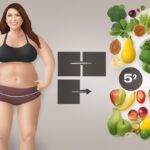Hey there, fasting enthusiasts! If you’ve ever embarked on a fasting journey—whether it’s intermittent fasting, a 24-hour fast, or even a prolonged water fast—you’ve probably wondered how to keep your body supported without breaking your fast. That’s where this ultimate supplements guide comes in. Fasting can be a powerful tool for health, weight management, and mental clarity, but it also puts unique demands on your body. The right fasting supplements can help you maintain energy, preserve muscle mass, and avoid nutrient deficiencies. In this post, we’ll dive deep into the best supplements for fasting, backed by science, and share practical tips to integrate them into your routine. Let’s explore how to fast smarter, not harder!
Why Consider Supplements During Fasting?
Fasting, by design, restricts calorie intake, which can sometimes lead to gaps in essential nutrients. While the body is incredibly adaptive—shifting to fat-burning mode and triggering autophagy (a cellular cleanup process)—it still needs support to function optimally (Mattson et al., 2017). A well-planned supplements guide for fasting can help bridge these gaps without interrupting the metabolic benefits of your fast. Supplements can also ease common fasting side effects like fatigue, headaches, or electrolyte imbalances. But not all supplements are fasting-friendly, so it’s crucial to choose wisely to avoid spiking insulin or derailing ketosis if that’s your goal.
Essential Electrolytes: The Foundation of Fasting Support
fasting supplements plan starts with replenishing these vital minerals.
- Sodium: Add a pinch of high-quality sea salt to your water (about 1/4 tsp per liter) to maintain hydration and prevent headaches.
- Potassium: Look for a no-calorie potassium supplement or use a salt substitute like LoSalt during longer fasts.
- Magnesium: Opt for magnesium citrate or glycinate (200-400 mg daily) to support muscle relaxation and combat cramps.
Pro tip: Sip on an electrolyte-infused water throughout your fasting window, but avoid sugary sports drinks that can break your fast. Keeping these minerals in check will make your fasting experience far more comfortable.
Vitamins and Minerals: Filling the Nutritional Gaps
While fasting offers benefits like improved insulin sensitivity, it can also limit your intake of key vitamins and minerals if not paired with nutrient-dense meals during eating windows (Longo & Mattson, 2020). A targeted supplements guide for fasting often includes a multivitamin or specific micronutrients to ensure your body isn’t running on empty. B vitamins, for instance, play a role in energy production, while vitamin D supports immune health—both critical when your body is under stress from fasting.
- B-Complex Vitamins: These can help with energy and brain fog; take during your eating window to avoid stomach upset.
- Vitamin D: If you’re not getting enough sunlight, a 2,000-4,000 IU supplement can support immunity and mood.
- Zinc: A small dose (15-30 mg) can bolster your immune system, especially during extended fasts.
- Omega-3 Fatty Acids: These anti-inflammatory fats (from fish oil or algae oil) support heart and brain health without breaking a fast.
Remember, the goal isn’t to overdo it—focus on what your body might be missing based on your diet and fasting style. Always consult with a healthcare provider if you’re unsure about dosages or interactions.
Boosting Energy and Focus with Fasting-Friendly Supplements
Let’s be real: fasting can sometimes leave you feeling sluggish, especially in the early days as your body adapts to burning fat for fuel. This is where energy-boosting supplements come into play as part of a comprehensive fasting nutrition guide. Certain compounds can enhance mental clarity and physical stamina without kicking you out of a fasted state. For example, caffeine—whether from black coffee, green tea, or a supplement—can sharpen focus and even enhance fat-burning by stimulating the nervous system (Burke, 2010).
Another popular option is exogenous ketones, which provide an alternative fuel source for your brain and body during ketosis. While not essential, they can ease the transition into fasting for beginners. Just be cautious with flavored versions that might contain sweeteners or additives. MCT oil, derived from coconut oil, is another fasting-friendly supplement that provides quick energy via medium-chain triglycerides, which are rapidly converted to ketones (St-Onge & Bosarge, 2008). Start with a small dose (1 tsp) to avoid digestive discomfort.
Preserving Muscle Mass with Amino Acids
If you’re fasting for weight loss or metabolic health, you might worry about losing muscle mass alongside fat. While short fasts (like 16:8 intermittent fasting) pose minimal risk, longer fasts can trigger muscle breakdown as the body seeks protein for energy (Trexler et al., 2014). This is where a supplements guide tailored to fasting can help with muscle preservation. Branched-chain amino acids (BCAAs) or essential amino acids (EAAs) are often discussed in fasting communities, but there’s a catch—they can stimulate insulin and technically break a fast.
For strict fasters, it’s best to stick to zero-calorie options or save amino acid supplements for your eating window. If muscle preservation is a top priority and you’re okay with a “dirty fast,” a small dose of BCAAs (5-10 g) during longer fasts might help. Alternatively, ensure adequate protein intake during eating periods to minimize muscle loss. The key is balance—don’t let the fear of muscle loss derail the benefits of fasting.
How to Choose the Right Supplements for Your Fasting Goals
Not every supplement fits every fasting protocol, and your personal health goals play a big role in crafting the perfect fasting supplements strategy. Are you fasting for weight loss, autophagy, or simply to reset your eating habits? For weight loss, focus on electrolytes and energy boosters like caffeine or MCT oil to sustain fat-burning. If autophagy (cellular repair) is your aim, keep supplements minimal to avoid interfering with the process—stick to water and electrolytes (Longo & Mattson, 2020).
Always prioritize quality over quantity. Look for third-party tested products to ensure purity, and avoid supplements with added sugars, artificial flavors, or fillers that could disrupt your fast. Timing matters too—fat-soluble vitamins (like D or K) are best taken with food during eating windows, while water-soluble ones (like B vitamins) can often be taken anytime. Lastly, listen to your body. If a supplement causes nausea or jitteriness, scale back or switch to a different form. Fasting is personal, and so is your supplements guide.
As we wrap up this deep dive into supplements for fasting, I hope you feel equipped to enhance your fasting journey with the right tools. This supplements guide isn’t about overloading on pills or powders—it’s about strategically supporting your body through electrolyte balance, key nutrients, and energy boosters. Fasting can be transformative, but it’s not a one-size-fits-all approach. Experiment with these recommendations, track how your body responds, and tweak as needed. Whether you’re a seasoned faster or just starting out, remember that consistency and mindfulness are key. Got questions or favorite fasting supplements to share? Drop a comment below—I’d love to hear your thoughts!
References
- Burke, L. M. (2010). Caffeine and sports performance. Applied Physiology, Nutrition, and Metabolism, 35(6), 818-838. https://doi.org/10.1139/H10-073
- Longo, V. D., & Mattson, M. P. (2020). Fasting: Molecular mechanisms and clinical applications. Cell Metabolism, 31(1), 6-12. https://doi.org/10.1016/j.cmet.2019.12.010
- Mattson, M. P., Longo, V. D., & Harvie, M. (2017). Impact of intermittent fasting on health and disease processes. Ageing Research Reviews, 39, 46-58. https://doi.org/10.1016/j.arr.2016.10.005
- St-Onge, M. P., & Bosarge, A. (2008). Weight-loss diet that includes consumption of medium-chain triacylglycerol oil leads to a greater rate of weight and fat mass loss than does olive oil. American Journal of Clinical Nutrition, 87(3), 621-626. https://doi.org/10.1093/ajcn/87.3.621
- Trexler, E. T., Smith-Ryan, A. E., & Norton, L. E. (2014). Metabolic adaptation to weight loss: Implications for the athlete. Journal of the International Society of Sports Nutrition, 11(1), 7. https://doi.org/10.1186/1550-2783-11-7
- Volek, J. S., & Phinney, S. D. (2011). The Art and Science of Low Carbohydrate Living. Beyond Obesity LLC.






